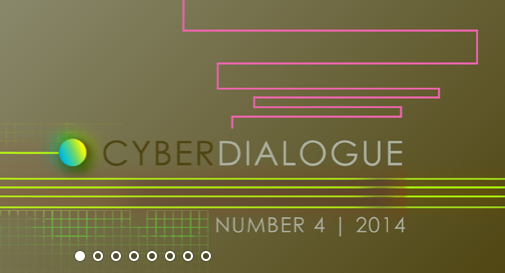CyberDialogue: The Future of Internet Freedom

I’m recently back from Toronto attending CyberDialogue 2014, an extraordinary gathering hosted by the University of Toronto's Munk School of Global Affairs, particularly their extraordinary CitizenLab. It's a heck of a group they pulled together - about 150 people from across academia, the NGO world, security geeks and government.
The topic for the meeting: “After Snowden, Whither Internet Freedom?”
From NDI's perspective, one of our greatest worries could be framed by dropping the H from whither: "After Snowden, will Internet Freedom Wither?”
Since Secretary Clinton put Internet Freedom on the policy agenda back in 2010, the US State Department has poured millions of dollars into promoting an open internet through funding technology to keep activists safe online and discussing the notion for a unified Internet with open access for all.
This has been a very important conversation within the United States government as well as in the world of human rights. Before the State Department Internet Freedom push, the entire discussion of rights online was framed around cyber-hyphen whatever - with language of security and control. Protect the online space by stripping away anonymity, maximizing monitoring, and generally empowering governments - including those of regimes not well known for vibrant democracy or rule of law. Rather than a monologue controlled by the Pentagon and NSA, the introduction of Internet Freedom as a frame shifted the internal conversations into a debate - and as a result, NGOs working for human rights advocates and democratic organizers had a place at the table.
The US government is a huge organization - close to 3 million employees, hundreds of bureaucracies. The idea that the NSA has been aggressively trying to subvert every pathway through the internet is now global news - and citizens around the world aren't going to be distinguishing the Department of State from the intelligence agencies. It's all just the US. That trickles down to US international development agencies as well, and damages by association reputation of organizations like NDI and even our partners for being associated with government funding.
It's a pity that civil society and some parts of governments are at loggerheads over these issues, because access to an open internet is an imperative for us all. As the UN Declaration of Human Rights Article 19 puts it:
"Everyone has the right to freedom of opinion and expression; this right includes freedom to hold opinions without interference and to seek, receive and impart information and ideas through any media and regardless of frontiers."
The internet is the communications space of our time. Fighting to keep the net open - and funding to support that goal - should be something we can all unite behind.
